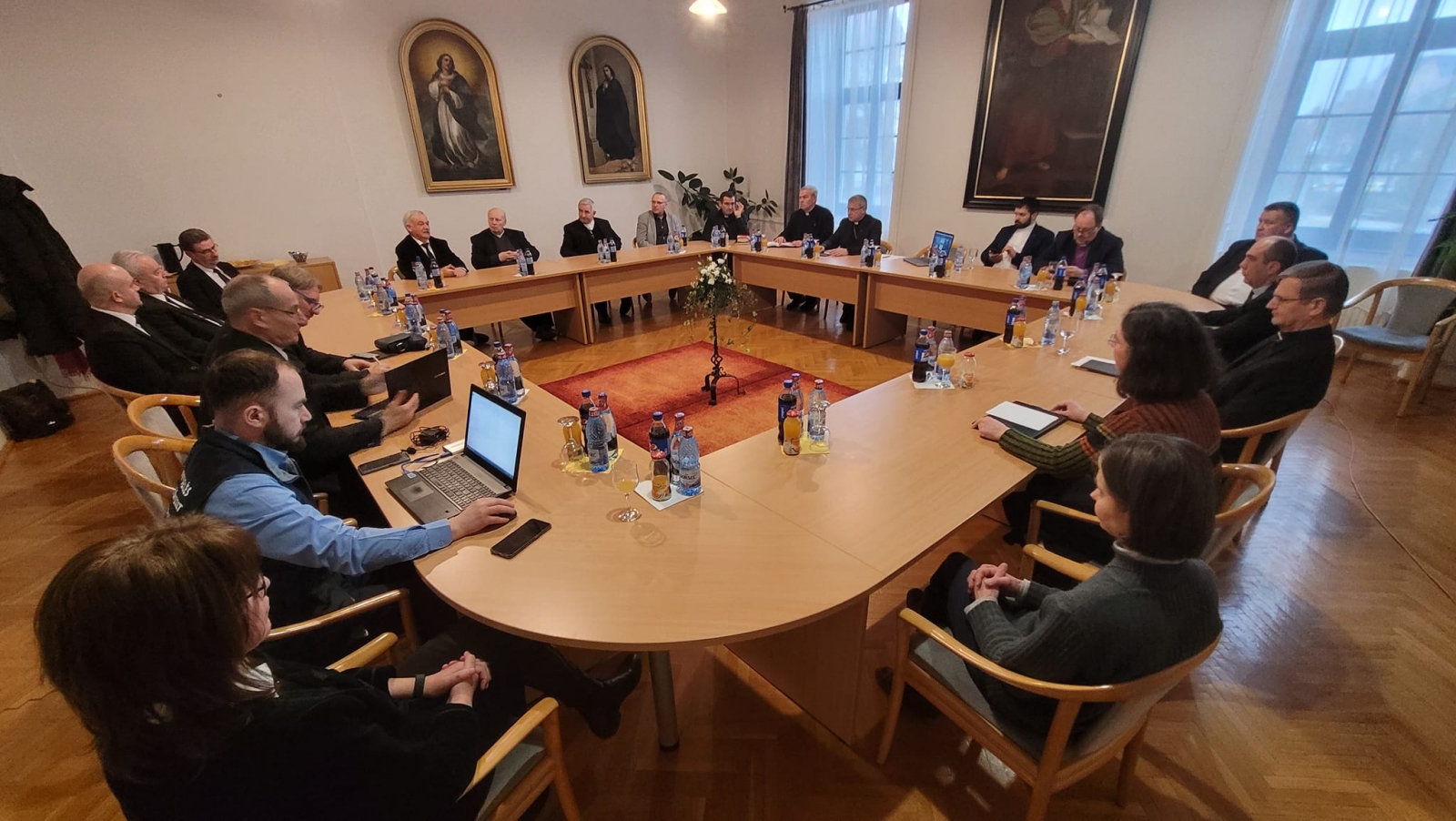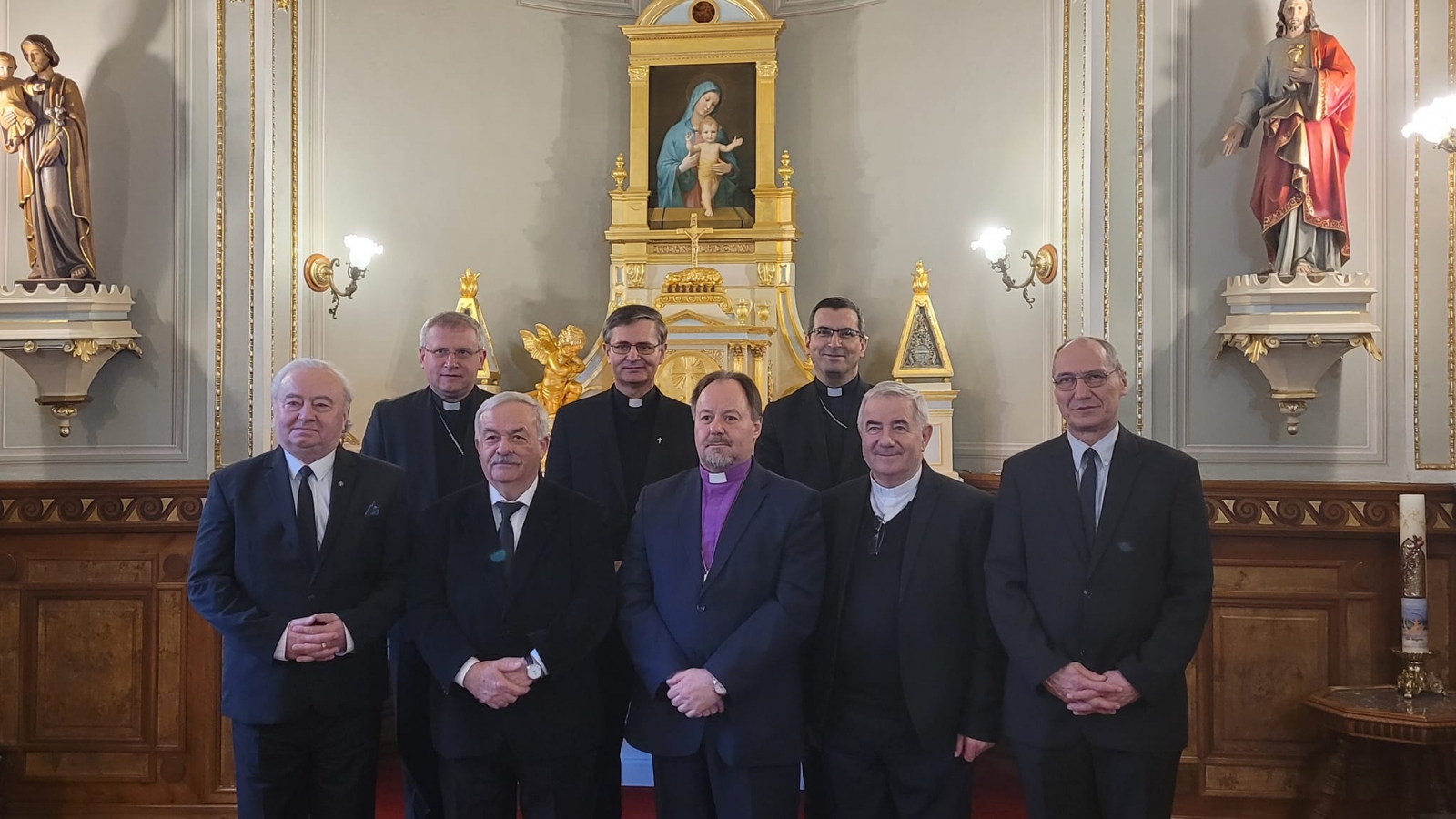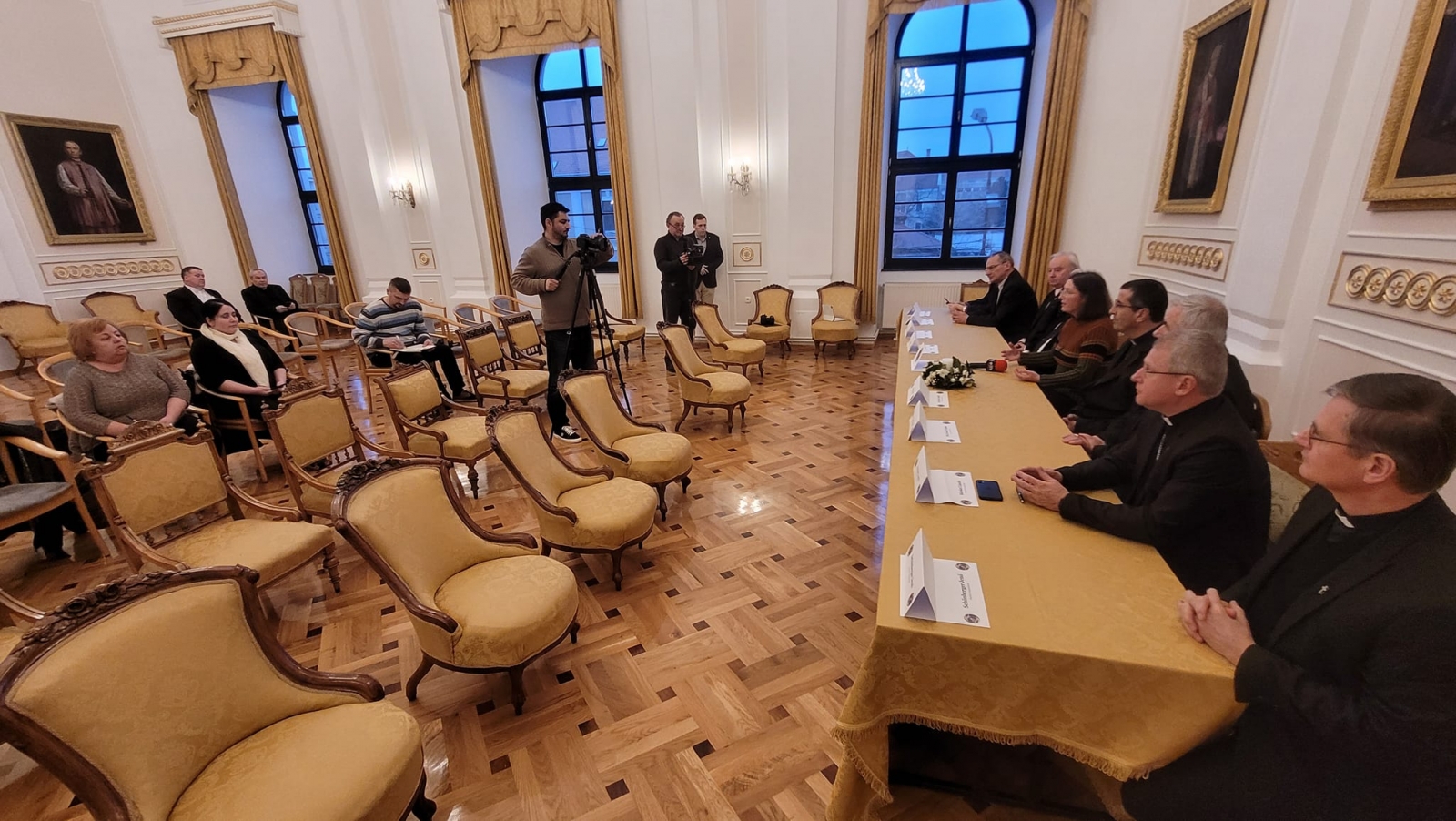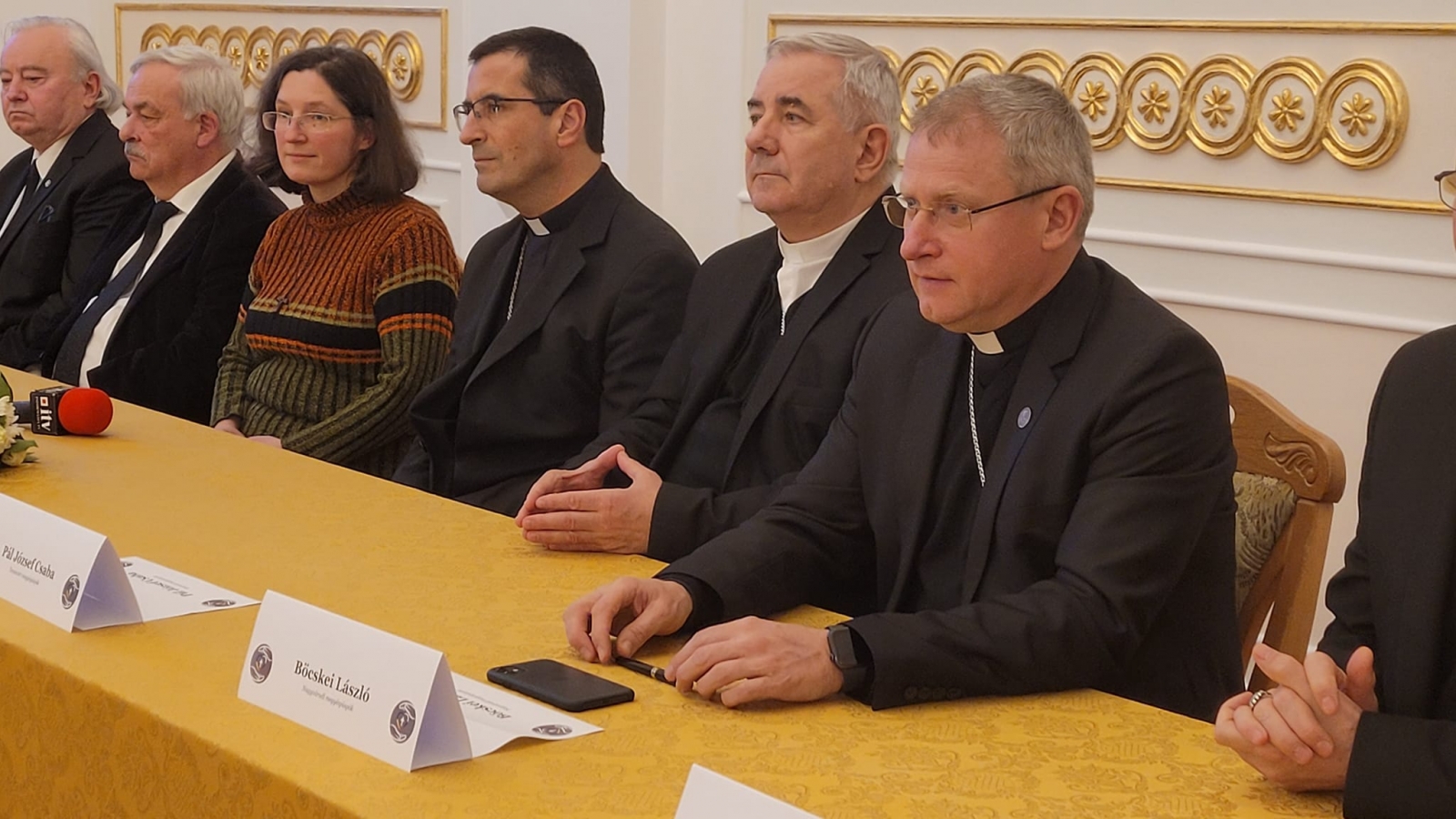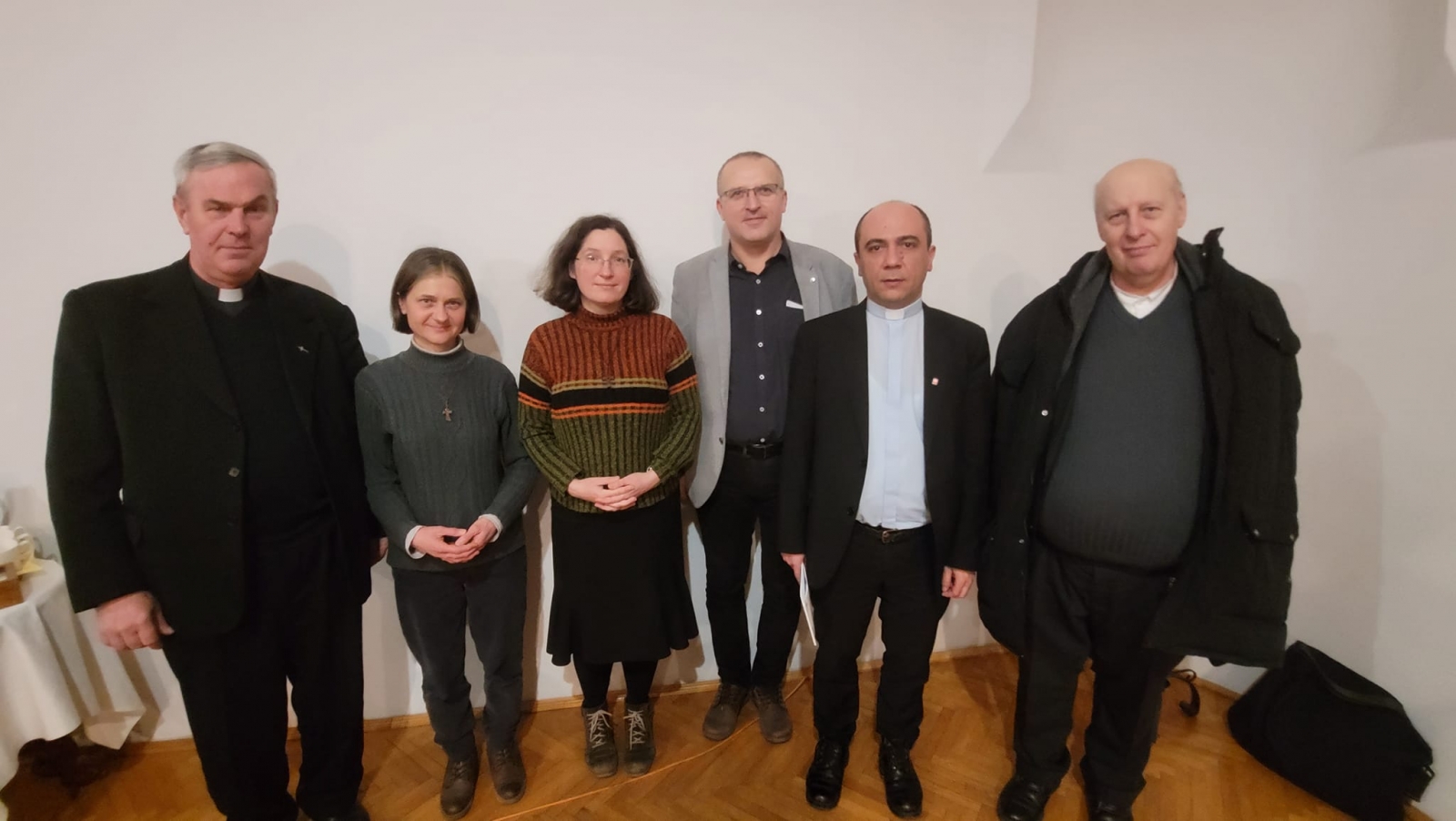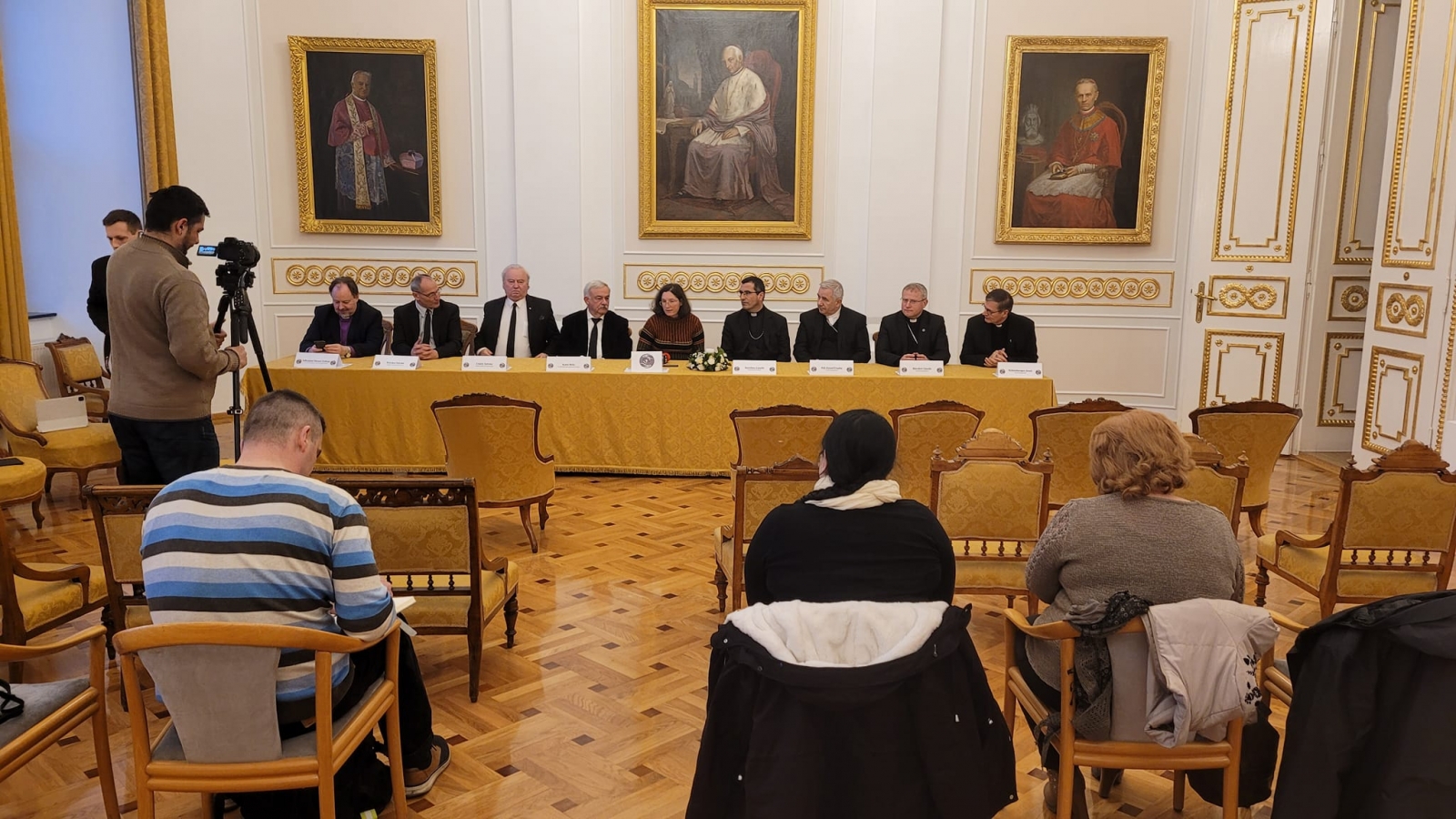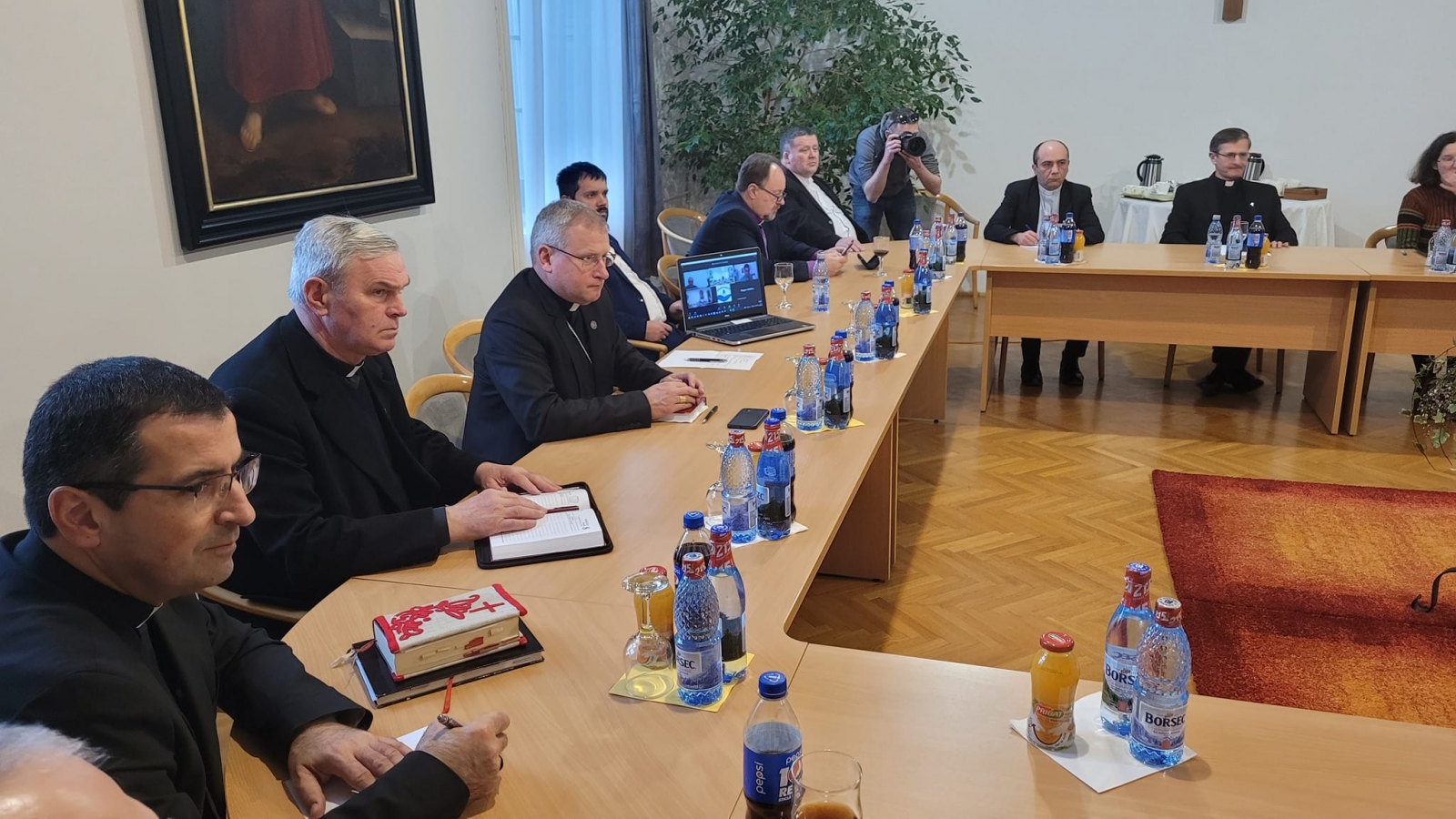The meeting was attended by László Böcskei, Roman Catholic diocesan bishop from Bihar County, István Csűry, Reformed Bishop of King's Pass, and József Rajna, CEO of Caritas Catolica in Oradea.
The event begun with a joint prayer of the leaders of the historical churches in the chapel of the Bishop's Palace of Satu Mare. Jenő Schönberger, bishop of the Diocese of Satu Mare, greeted the assembled as the host, he briefly presented the building, and especially the lavish chapel, where the Petőfi altar stands, in front of which Sándor Petőfi hungarian national poet swore oath with Júlia Szendrey. Following the welcome speech of the host, the bishops of the Roman Catholic, Reformed, Unitarian and Lutheran dioceses of Transylvania said their prayers for peace. They prayed for the victims, for the children, for the broken families, for the staff in the relief service, and for the merciful grace of the Lord they offered to those who suffered aggression, as well as the aggressors.
At the meeting following the prayer, Márta Popovichné Palojtay, head of the crisis group of the Diocese of Munkács, gave a report on the situation in Ukraine. As she pointed out, Transcarpathia is still an island of peace in Ukrainian terms, as there have been no acts of war here and the Carpathian mountains encircle it, but the community is suffering greatly from the situation, because many people are fleeing here from inner Ukraine. There are still reserves, but food shortages and fuel shortages are starting to emerge, and at the same time prices have also soared, so it is no longer possible to get along with the financial frameworks that were previously scarce but sufficient. "The war brings out the core values of the people. They are no longer thinking about what hairstyle to do or what clothes to buy, they are only concerned with the most important things" she reported. Perhaps this is why many more people attend Holy Masses, because more and more people are thirsting for the spiritual reassurance of prayer, and this is why the chains of prayer organized throughout Europe also play an important role.
Sándor Fábián, the Reformed Bishop, said that due to the influx of refugees arriving in Transcarpathia, private accommodations are already full and there are fewer and fewer accommodations in the institutions. People have a lot of uncertainty and fear. Since many have fled leaving their houses unattended, looting is taking place in some places, which they are trying to contain with civil guard, but there is little equipment – more cameras, flashlights, radio phones would be needed.
It became clear from the discussion that it was important to provide targeted assistance and accurately fill out transport documents so that donations are not stranded at the border. You should always try to answer current needs. To facilitate this, the entire Monday meeting was served by the bishops, during which the bishops held a joint press conference, and representatives of Caritas Catolica and other church aid organizations established a working group to communicate real needs and organize donations.
